Science Experiments Teaching Resources
Unlock science experiments for kids and a love of experimentation in your classroom with ready-made experiments created for your elementary and middle school students by science teachers just like you!
This extensive collection of curriculum-aligned experiments was created to save you time on your lesson plans and help you help your students learn to discover brand-new knowledge about the workings of the world around us!
New to teaching students to conduct experiments or just looking for some handy tips? Read on for a primer from our teacher team, including a way to explain what an experiment is, plus some handy terminology!
What Is a Science Experiment? A Kid-Friendly Definition
If it's your first time introducing experiments, a definition may come in handy. Here's how we explain the meaning of this concept to students:
A science experiment is a way to test a hypothesis or investigate a question in a systematic and controlled manner. Experiments allow us to ask questions, form hypotheses and discover new information.
What Is a Fair Test?
In order to set the stage for successful experimentation, students need to understand how to set up fair tests — also known as controlled experiments.
A fair test is an experiment in which all variables — except for the independent variable — are kept constant and controlled. The goal of conducting a fair test is to ensure that any observed changes or outcomes can be confidently attributed to the independent variable being tested.
Here's what students should know about fair tests:
- Controlling variables means keeping them the same or at the same level across all groups or conditions in the experiment.
- Without controlling variables in a fair test, it becomes difficult to determine the true cause-and-effect relationship between the independent variable and the observed changes.
- A fair test should be an experiment that can be replicated. That means that other scientists should be able to repeat the experiment and achieve similar results by following the same procedures and controlling the same variables.
Creating a rain cloud in a jar is a fun science experiment for kids that allows students to see the actions of water vapor and condensation in action in the classroom.
What Is an Independent Variable in a Science Experiment?
You know that your students will need an independent variable to ensure the success of their science experiments, but do you need a handy definition to explain what these are? We've got you covered!
Here's how to explain these core components of any good experiment to your young scientists:
An independent variable is the factor in an experiment that a scientist deliberately changes or manipulates to test their hypothesis. Changing the independent variable can help you determine if it has an impact on the outcome or on the dependent variable — which should not be changed or manipulated.
As noted earlier, in order to have a true fair test, students need to control or keep constant all other variables except for the independent variable.
Independent Variable Example
For example, let's say a student wanted to run an experiment to determine if plants grow better in conditions where classical music is played than in conditions where there is no sound or rock music is played.
In this type of experiment, the sound introduced to the plant would be the independent variable. It would change, while other variables — such as the amount of sunlight and water that the plant received — must remain the same.
What Is a Control in an Experiment?
The independent variable will change in a student's experiment, but the control will do the exact opposite!
The control in a science experiment refers to any variables or conditions that are kept constant or unchanged throughout the experiment. It's just as important to the fair test that these stay constant as it is that the independent variable is changed.
Control Example
For example, in the plant and sound experiment described above, the amount of water and sunlight would be controls as neither would change.
- Free Plan
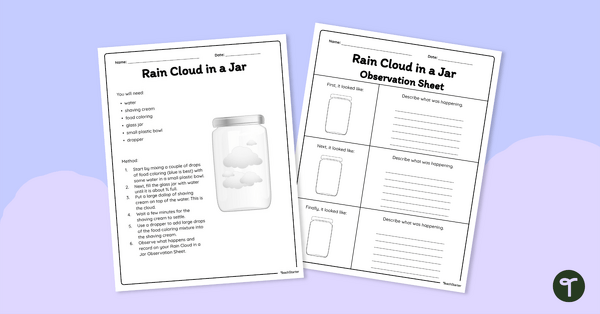
Rain Cloud in a Jar Experiment
Use this science experiment when learning about the different types and features of clouds and how they contribute to the water cycle.
- Plus Plan
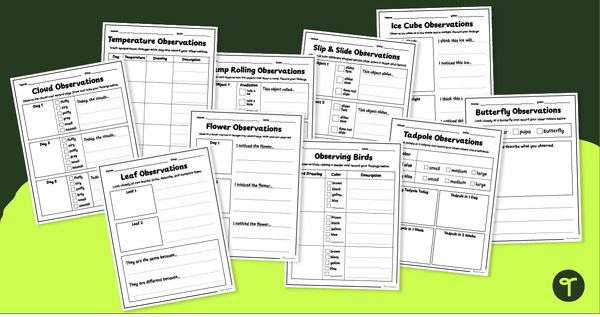
Scientific Prediction & Observation Templates (K-2)
Introduce your early learners to scientific inquiry skills with a set of printable Scientific Observation templates.
- Free Plan
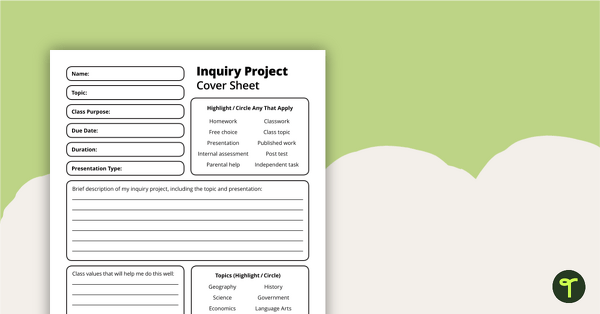
Inquiry Project - Template
A diverse template to help students craft inquiry questions to produce different types of research projects.
- Plus Plan
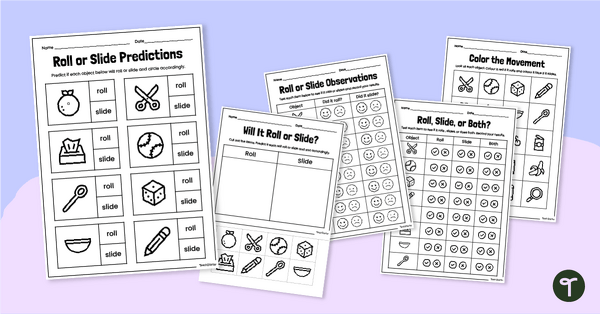
Roll or Slide Worksheets - Science Inquiry (K-1)
Explore motion and boost science inquiry skills with Roll or Slide Worksheets.
- Plus Plan
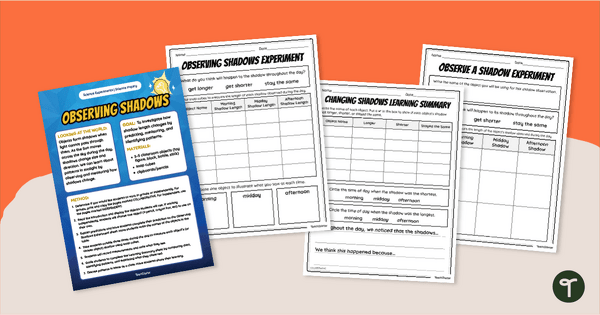
Observing Shadows Science Investigation (1-2)
Explore the world of light, shadow, and scientific inquiry with an engaging, outdoor Shadow Observation experiment.
- Plus Plan
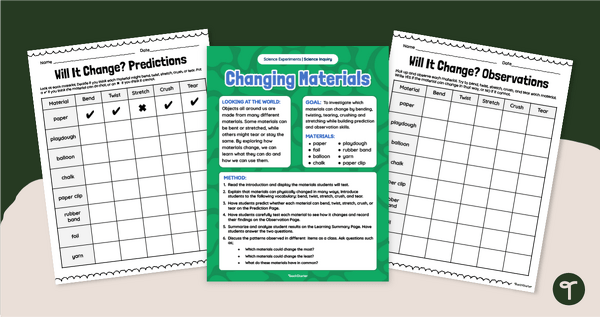
Bend, Twist, or Stretch? Changing Materials Inquiry Activity
Explore materials, observe physical changes, make predictions, and share scientific observations with a hands-on Properties of Materials Science Investigation.
- Free Plan
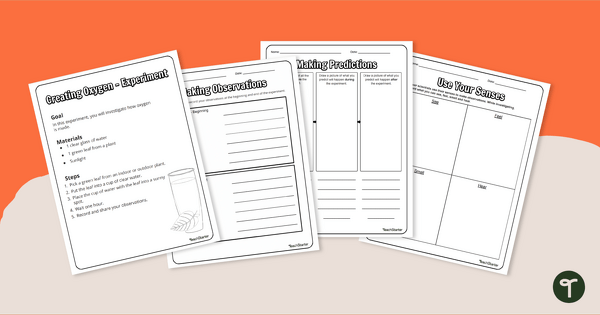
Observing Photosynthesis Experiment (K-2)
Investigate how oxygen is made with a hands on photosynthesis experiment.
- Plus Plan
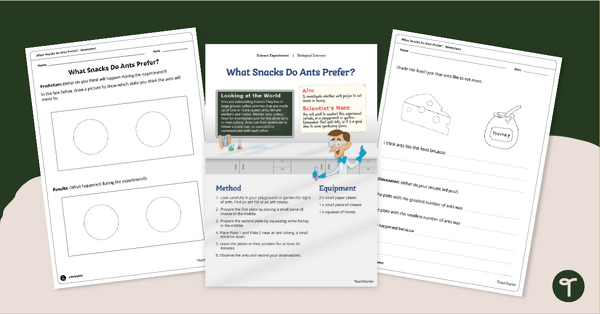
Science Experiment - What Snacks Do Ants Prefer?
Teach your students how to make scientific predictions and observations with an engaging hands-on science experiment..
- Plus Plan
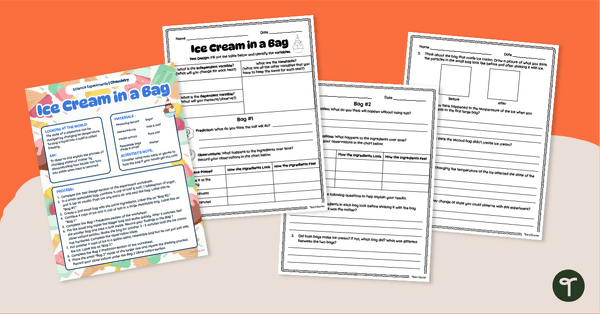
Ice Cream in a Bag – Removing Heat Experiment
Make Ice Cream in a Bag and discover how removing heat causes matter to change states.
- Plus Plan
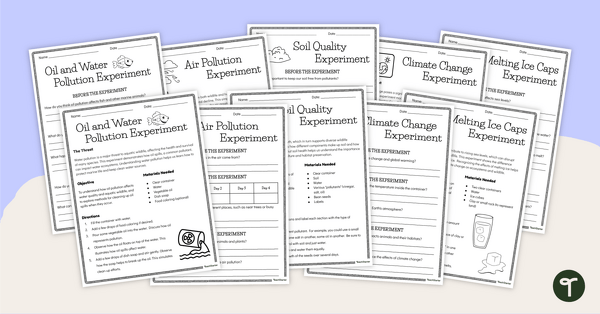
Environmental Impact Science Experiments
Use these simple science experiments to teach your students about environmental issues such as oil and water pollution, soil quality and climate change.
- Free Plan
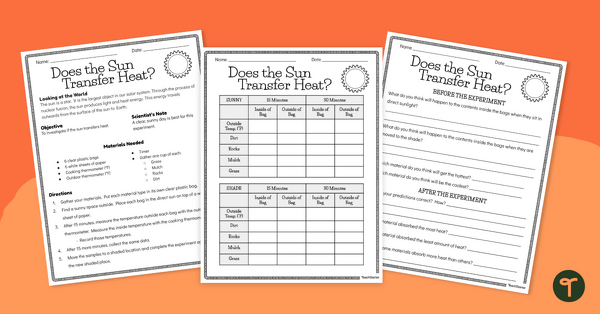
Does the Sun Transfer Heat? – Science Experiment
Discover how the sun transfers thermal energy and which objects absorb more heat with this science experiment for kids.
- Plus Plan
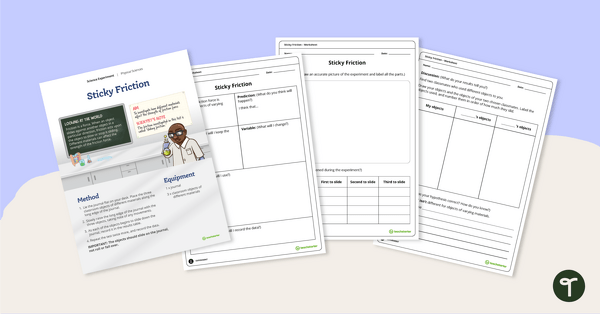
Friction Experiment - Sticky Friction
Use this engaging friction experiment when teaching your students about sliding friction and the effect it has on the movement of objects.
- Plus Plan
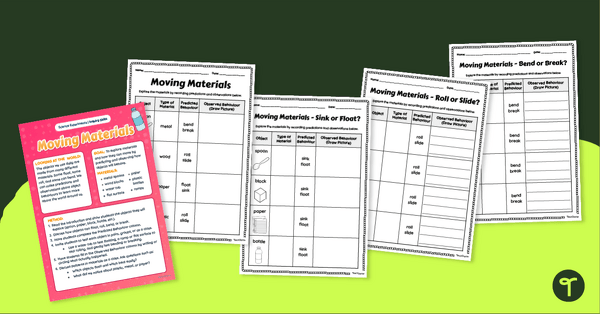
Moving Materials Science Experiment Pack
Explore materials and how they behave with an engaging Moving Materials Science experiment pack.
- Plus Plan

Sink or Float Experiment Pack (K-1)
Explore properties of matter and boost science inquiry skills with a Sink or Float Science Experiment.
- Plus Plan
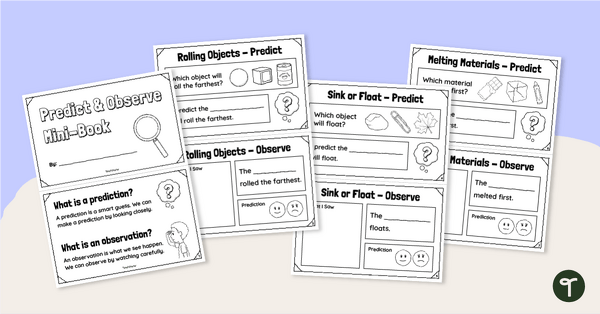
Predict and Observe Science Investigations Booklet (K-1)
Introduce your K-1 students to scientific investigation with a printable Predict and Observe Science Lab Activity Booklet.
- Plus Plan
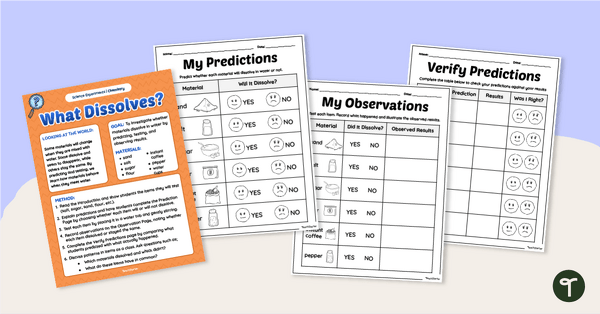
What Dissolves? Science Inquiry Activity (K-1)
Introduce science inquiry skills and investigate whether materials dissolve in water with a hands-on science experiment for early learners.
- Plus Plan
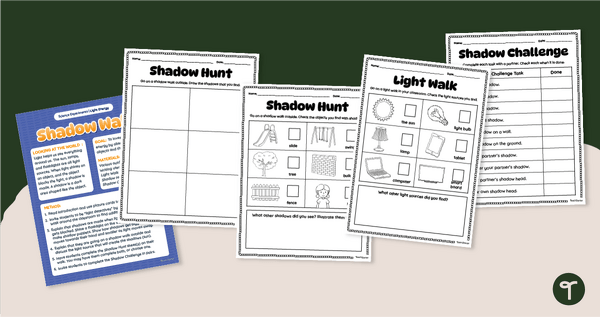
Shadow Walk Activity Pack (K-1)
Explore light and shadow while building science observation skills with a printable Shadow Walk Activity Pack.
- Plus Plan
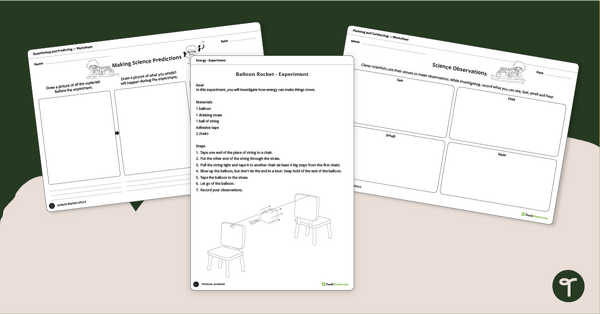
Balloon Rocket Experiment
Complete a hands-on Balloon Rocket experiment to use when investigating how energy can make things move.
- Plus Plan
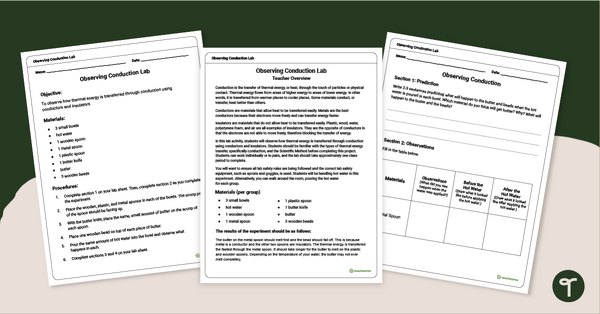
Observing Conduction Science Experiment
Teach students to make predictions about and observe thermal energy transfer through this conduction experiment.
- Plus Plan
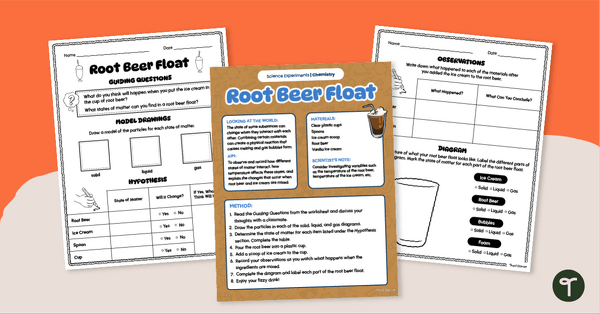
Root Beer Float – Solid, Liquid, Gas Science Lab
Explore solids, liquids and gases while making tasty treats with an exciting Root Beer Float Science Experiment.
- Plus Plan
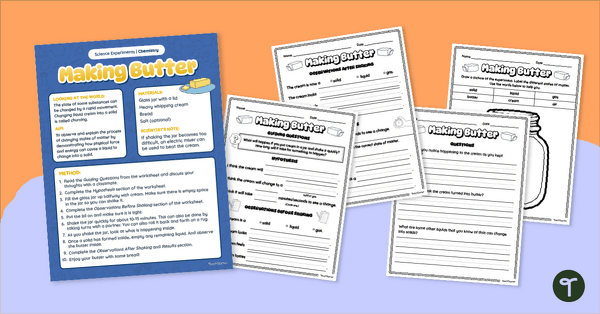
Making Butter in a Jar – States of Matter Lab Activity
Have fun making butter in a jar in this exciting Changing States of Matter Lab Activity.
- Plus Plan
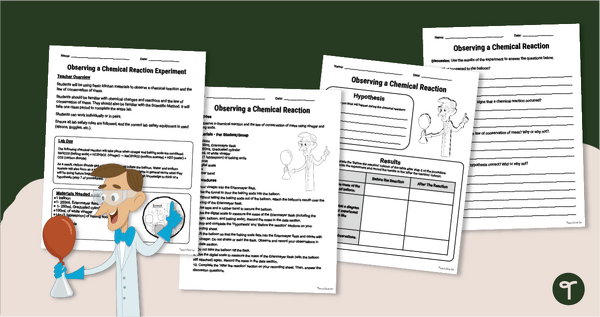
Observing Chemical Reactions Experiment for Kids
Investigates chemical changes and the law of conservation of mass with our Observing Chemical Reactions Experiments.
- Free Plan
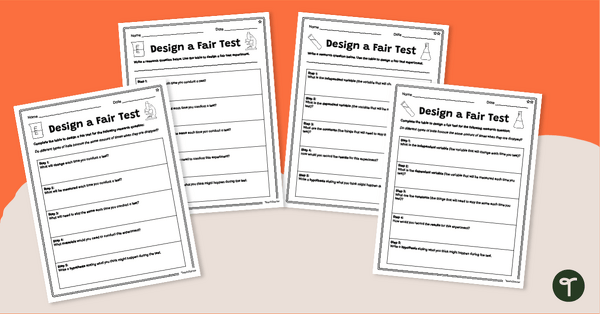
Design a Fair Test - Differentiated Experimental Design Worksheets
Use a differentiated experimental design worksheet to introduce your students to the concept of fair testing in science.
- Plus Plan
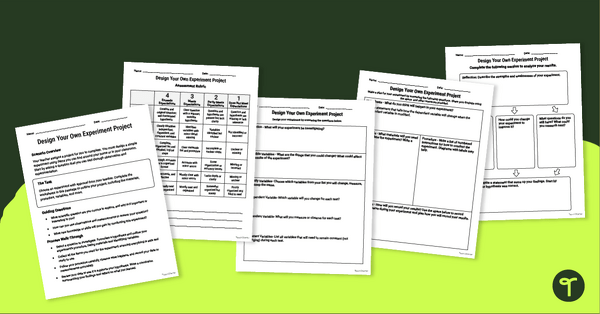
Design An Experiment Worksheet & Project Guide
Design your own science experiments and science fair projects with an experimental design project.
- Plus Plan
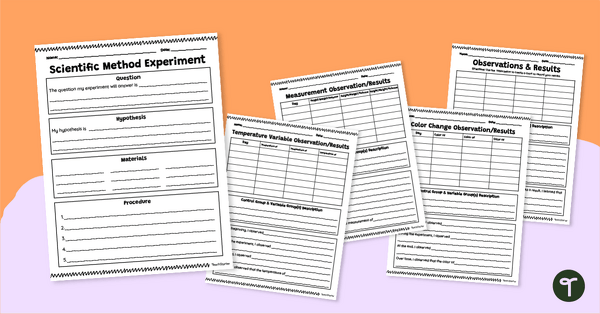
Scientific Method Experiment Observation Templates
Record scientific observations and results with a variety of Scientific Method Experiment Observation Templates.
- Plus Plan
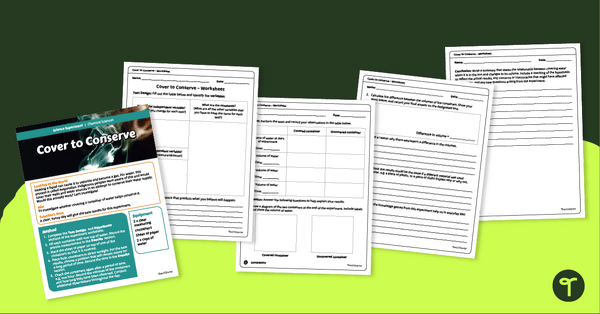
Evaporation Experiment - Cover to Conserve
Investigate if evaporation can be reduced by covering a body of water with a hands on Evaporation Experiment.
- Plus Plan
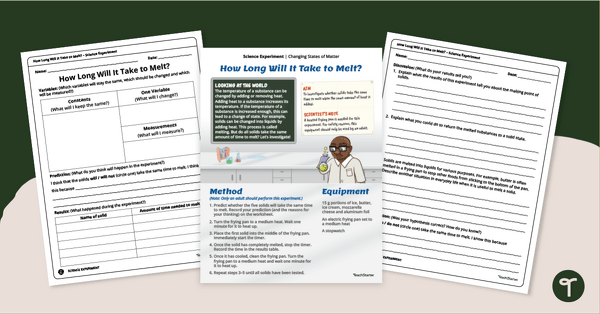
Changing Matter Experiment – How Long Will It Take to Melt?
Explore how solids change into liquids with an exciting hands-on Matter science experiment.
- Plus Plan
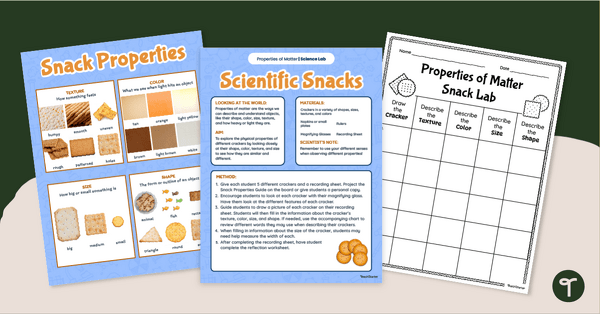
Observing Matter – Edible Science Experiment
Discover the observable properties of matter with an exciting edible science experiment!
- Plus Plan
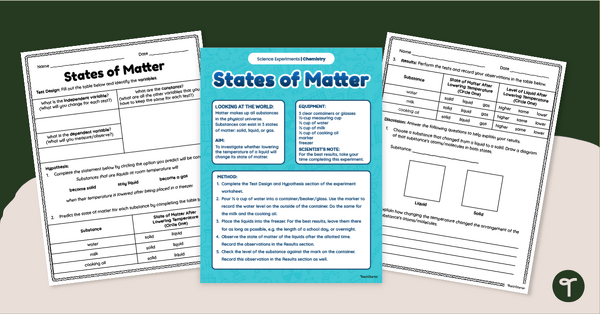
Science Experiment - Changing States of Matter
Investigates how a substance's state of matter can be changed with a hands-on science experiment.
- Plus Plan
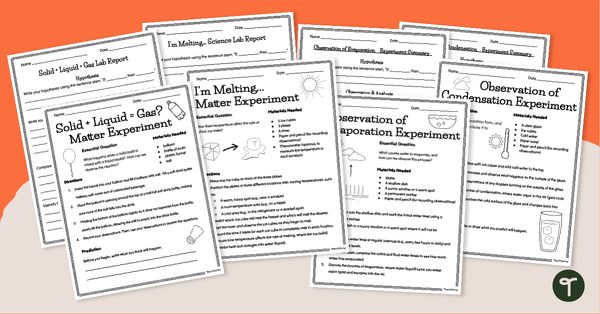
States of Matter Science Lab Activity Pack
Discover the states and changes of matter with a printable pack of Science Lab Activities for Kids!
- Plus Plan
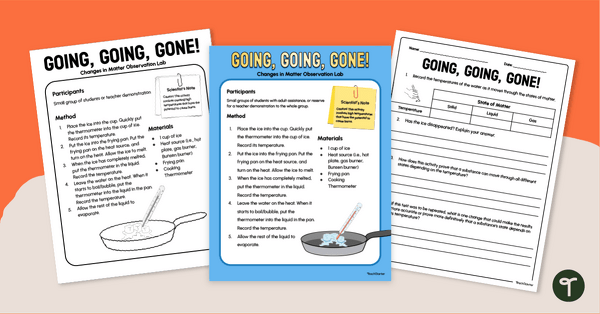
Going, Going, Gone! - Changing States of Matter Experiment
Explore the changing states of matter due to temperature with an engaging science lab activity.
- Plus Plan
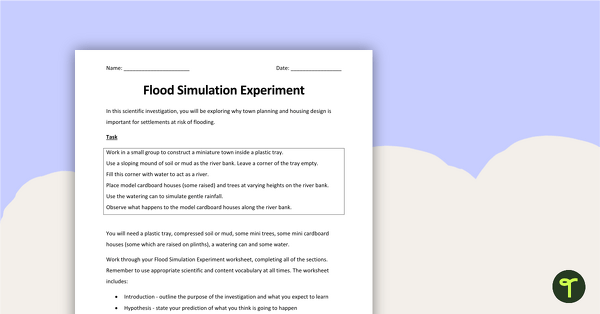
Natural Disasters - Flood Simulation Experiment
A hands-on experiment to use when exploring natural disasters.
